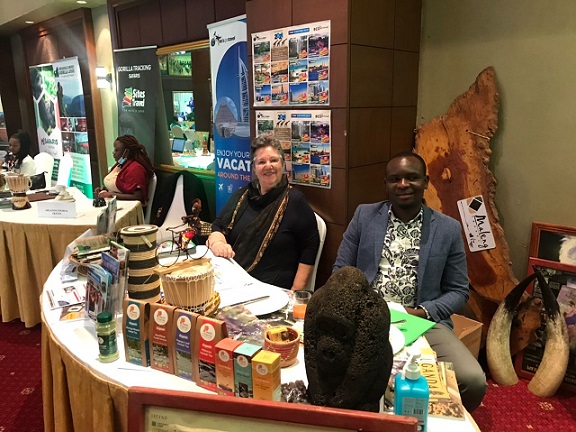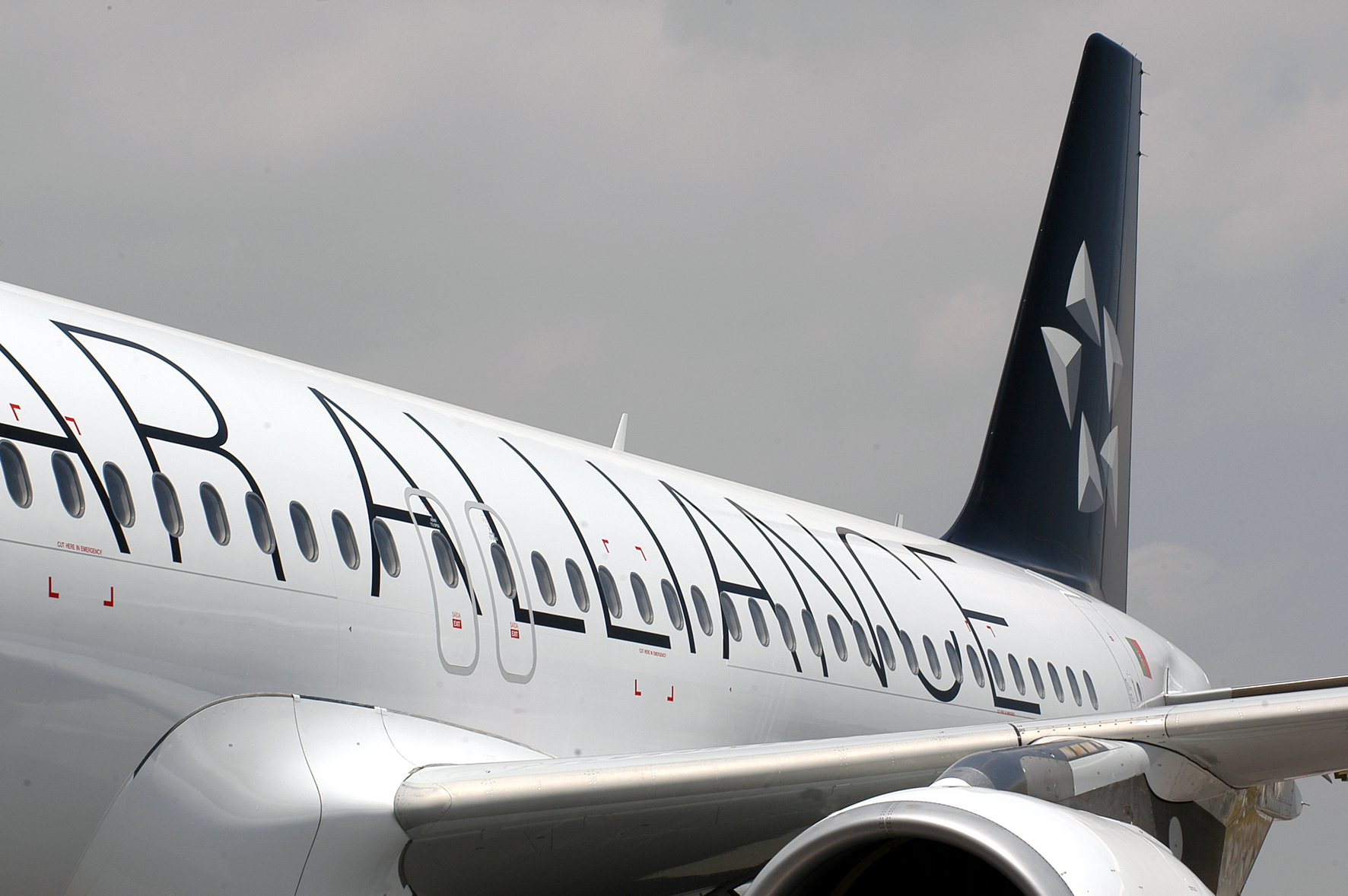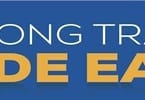- The event was held under the COVID-19 Economic Recovery And Resilience Response Program (CERRRP).
- This was in a bid to stimulate incentive travel in the domestic corporate sector targeting heads of private and public companies and corporations.
- The event was opened by Permanent Secretary (PS) of the Ministry of Tourism Wildlife and Antiquities (MTWA) Doreen Katusiime.
Addressing the Chief Executive Officers and exhibitors in attendance, virtually and physically, she reported that the private sector experienced job losses, redundancies, loss of income at enterprise and at national level, and loss of foreign exchange that threatened conservation. Despite this, the domestic market proved to be a reliable anchor in the face of these challenges.
She noted that there is increasing visitation by Ugandans to the different tourism sites including national parks, Source of the Nile, beachfronts, Uganda Wildlife Education and Conservation Centre (UWEC), islands, and in the same vein access infrastructure has improved the propensity to travel and the investments in accommodation and tourist activities within the attractions are slowly growing. She added that demand is supported by the growing size of the middle class, the influx of the corporate sector, and the ICT revolution that has made information more accessible.
“More Ugandans have discretionary income and the means to widen their expenditure profiles. These positive gains reflect an opportunity that is largely untapped. The domestic tourism demand is driven by visiting friends and relatives; rural urban migration; cultural events; and ceremonies including births, marriages, initiation ceremonies, etc. These events are ceremonies that bind our society, and the cultural events after the restitution of traditional kingdoms have also brought in more interest including coronation anniversaries and visits by cultural leaders to their subjects,” said the PS.

She outlined other drivers of domestic tourism including faith-based events, the most famous being the annual Namugongo Uganda Martyrs Pilgrimage on June 3, Pentecostal crusades, conferences, incentives, workshops, and meetings that have become a powerful tool for social and economic mobilization and other motivational drivers namely travel for medical reasons, entertainment, shopping, education, and research.
She commended Master Card Foundation for coming in to support the tourism sector towards recovery and resilience and appealed to corporate heads attending physically and online to embrace incentive travel.
Keynote speaker and Private Sector Foundation Uganda (PSFU) Acting Executive, Director Francis Kisirinya, said that the purpose of convening the breakfast was to reignite age incentive travel among Uganda’s corporate organizations and employees. In his justification, he said it is because it is the corporate organizations and their employees that do have disposable income that can be put in incentive travel.
He pledged that PSFU will work hard to ensure that the private sector has a conducive business environment through advocacy, lobbying, and research for sustainable enterprise growth. He said that the tourism and hospitality sector is one of the sectors that was majorly hit by the effects of the COVID-19 pandemic. However, currently the sector is seeing a steady recovery path through containment measures that have been put in place by the government.
According to the MTWA report, the COVID-19 pandemic encouraged Ugandans who were previously unable to travel to visit attractions within their own country. Between August 2020 and March 2021, domestic tourism tripled from 21,000 to 62,000 tourists. Going by these statistics, this projects a much higher number from March to December considering the industry is going into peak season.
He defined Incentive travel as the reward or loyalty program which takes the form of an all-expenses-paid trip with a program of scheduled events and activities. It is both public and private enterprises that incorporate incentive travel that recognize benefits ranging from greater loyalty from the employees, strong team relations between employer and employees, maintained motivation, providing goals, healthy competition in the workplace, boosting employee creativity and productivity, creating a positive company culture, and making the business more attractive for recruits.
He added that incentive travel has immense economic and social transformation potential to employees and to the economy which may include fueling strong performance growth and advocacy, creating measurable sales growth, and return on investments. Through self-funding, it provides a unique experience of peers traveling with company leaders that is more effective than when they travel on their own. It also supports the ability to align corporate objectives, individual objectives, and brand advocacy. Emerging research indicates that emotional connection with the brand is more powerful than the existing motivators alone driving sales effort.
Incentive travel also has economic impact as travel in a rebounding economy is a major stimulant to reviving the world economy as face-to-face meetings encourage collaboration and social connections. Hotels aligned to local destination management firms experience a positive return on investment and direct employment for the youth who come along, too. Therefore, he encouraged CEOs present and government parastatals to put in place policies that for example motivate IT and administration departments that are often overlooked.
He appealed to the government to support in developing and designing policy guidelines for a wider tourism product range to encourage competitiveness in the areas of meetings, incentives, conferences and exhibitions (MICE), agro tourism, community-based tourism, cultural-based tourism, religious tourism, etc.
Emphasis should be put on profiling a range of experiences so that they are available to Ugandans and will create a strong national brand and create consistent interpretation of Uganda’s story across a range of tourism products and invest in market research.
He thanked development partner and sponsor, the Master Card Foundation, for coming up with a budget of UGX32 billion (US$ 8.98 million) which it entrusted to the government and private sector. This equipped health facilities with 40,000 PCR test kits, equipment for laboratories in the Uganda National Bureau of Standards (UNBS) for product certification, hospital beds, personal protective equipment (PPEs), and security equipment.
He concluded by announcing that PSFU is also working with the government to develop a new private sector development strategy to emerge out of COVID-19, and the package also includes a strategy to recover and build resilience with one of the outcomes being this very breakfast meeting.
Complimenting Kisirinya‘s presentation, Peter Mwanje, RT of the Uganda Chapter, a private incentive company, said that adding that incentive programs may involve corporate social responsibility, for example painting a school block, or simply going to lounge, or to the beach, or adrenaline activities. He advised tour operators to create a separate desk for incentive travel, because it is different from conferences.
He also reiterated to the CEOs that incentive programs will not impact on their budgets in any way as they would only use a percentage of revenues that have accrued from excess in profits. It accounts for 7% of all business tourism activity accounting for about US$75 billion globally.
Pearl Horreau, President of UTA, the apex body for the tourism, travel, and the hospitality sector, appealed to the CEOs to harness domestic tourism as an alternative force for motivating their staff by rewarding them though paid holidays in order to strengthen corporate synergy and to improve productivity at the workplace.
The presentations were followed by a panel session of eminent industry personalities moderated by Commissioner of Tourism for MTWA, Viviane Lyazi. It was comprised of Uganda Tourism Board (UTB) Deputy CEO Bradford Ochieng and Chair of the Association of Uganda Tour Operators (AUTO) and Board member of PSFU, Civy Tumusiime Ochieng, who said Uganda is the fourth most diverse country in the world in terms of culture. He said that a study done by the BBC in 2019 on expatriates found that Uganda is the friendliest country in the world. However, the last competitive index study rated Uganda at 112 out of 140 countries. In terms of health and hygiene, it was 136 out of 140 which is a big problem. He advised that they need to make the destination first attractive and competitive. Civy Tumusiime encouraged CEOs to get on the domestic tourism program band wagon by incentivizing their staff and their families with domestic trips, as the young would grow up to embrace the culture.
Exhibiting companies from the private sector included National Arts and Cultural Crafts Association of Uganda, Murat Studios, Arlanda Tours and Travel, Orogu Tours, Petnah Africa Tours, Voyager African Safaris, Lets Go Travel, FCM Travel Solutions, Pristine Tours, Buffalo Safari Lodge, Papyrus Guest House, Park View Safari Lodge, Sites Travel, Gazelle Safaris, Gorilla Heights Lodge, Pinnacle Africa, MJ Safaris, Asante Mama, Go Africa Safaris, Maleng Travel, Talent Africa, and Toro Kingdom.
WHAT TO TAKE AWAY FROM THIS ARTICLE:
- She noted that there is increasing visitation by Ugandans to the different tourism sites including national parks, Source of the Nile, beachfronts, Uganda Wildlife Education and Conservation Centre (UWEC), islands, and in the same vein access infrastructure has improved the propensity to travel and the investments in accommodation and tourist activities within the attractions are slowly growing.
- It is both public and private enterprises that incorporate incentive travel that recognize benefits ranging from greater loyalty from the employees, strong team relations between employer and employees, maintained motivation, providing goals, healthy competition in the workplace, boosting employee creativity and productivity, creating a positive company culture, and making the business more attractive for recruits.
- In his justification, he said it is because it is the corporate organizations and their employees that do have disposable income that can be put in incentive travel.






















![China's Hyperloop Train: A Glimpse into the Future of Transportation 21 Travel Tourism News | Domestic & International Hyperloop Train China [Photo: Hyperloop Transportation Technologies]](/cdn-cgi/image/width=145,height=100,fit=crop,quality=80,format=auto,onerror=redirect,metadata=none/wp-content/uploads/2024/02/180720163348-hyperlooptt-china-capsule.jpg)
